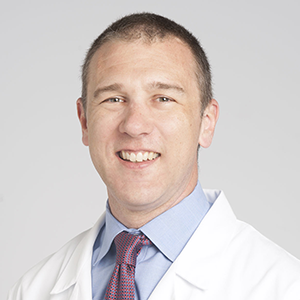BAFF-ligand CAR T-cells and pre-apheresis B cell lymphodepletion for relapsed / refractory CLL

Paolo Caimi
MDCleveland Clinic
Project Term: July 1, 2024 - June 30, 2027
Most CLL patients treated with CAR T-cells that target the CD19 antigen on the cell do not achieve a complete remission. CLL cells express other molecules on their surface; one of them is the receptor for BAFF (BAFF-R), which is highly expressed. We propose a phase I trial investigating LMY-920 for treatment of CLL. LMY-920 is a different type of CAR T-cell because it does not rely on an antibody structure to identify BAFF-R, but uses the structure of the ligand BAFF itself, and this may help avoid resistance to CAR T-cells.
We also aim to improve the quality of the CAR T-cell product by removing the circulating B cells with a monoclonal antibody prior to collecting lymphocytes for manufacture.
The treatment landscape of CLL has radically changed over the last two decades. The introduction of BTK inhibitors such as ibrutinib and the BCL2 inhibitor venetoclax means patients now diagnosed with CLL are surviving longer than before. However, there are still patients who are failed by these treatments and for whom options can rapidly become exhausted.
CAR T-cells may become an option for the treatment of relapsed CLL. The initial reports of CAR T-cell efficacy were in patients diagnosed with CLL, but it is now apparent that CAR T-cells targeting the surface antigen CD19 are much more active against other B-cell lymphomas, like diffuse large B-cell lymphoma, than CLL. In a recent study, the anti-CD19 CAR T-cell lisocabtagene maraleucel achieved complete remission in only 18% of patients with CLL relapsed after therapies like ibrutinib or venetoclax. These results suggest the potential of CAR T-cells in CLL is not fully realized yet.
Resistance to CAR T-cells targeting the cell surface protein CD19 can occur by elimination of CD19 from surface of the cancer cell. LMY-920 is a CAR T-cell that targets CLL cells by expressing a ligand, BAFF, which binds to a receptor present in CLL cells, called the BAFF receptor (BAFF-R), as well as two other receptors, BCMA and TACI. A potential advantage of targeting BAFF-R is that CLL cells cannot survive without its expression. This makes it less likely that the CLL cells will become resistant to LMY-920 by eliminating BAFF-R from their surface.
We also plan on decreasing the number of CLL cells from blood and bone marrow by treating patients with Obinutuzumab before collecting lymphocytes for CAR T-cell manufacture. This strategy has the potential to improve the efficacy of the final CAR T-cell product, and also can reduce the amount of leukemia, decreasing the risk of adverse events such as cytokine release syndrome or neurologic toxicity. Our proposal will search the optimal dose of LMY-920 for patients with CLL when the CAR T-cell product is manufactured from lymphocytes collected shortly after Obinutuzumab has been prescribed. We plan to test three different doses of LMY-920 and include up to 18 patients who have had their disease relapse after treatment with a BTK inhibitor and a BCL2 inhibitor.
Patients will receive standard-dose Obinutuzumab prior to collection of their lymphocytes (7 days), and then have LMY-920 manufactured at the National Center for Regenerative Medicine in Cleveland, Ohio. Three weeks later, patients would receive chemotherapy over 3 days followed by single infusion of LMY-920. We will then monitor participants for safety and to evaluate the efficacy of LMY-920. Initial responses can be seen within one month of infusion, further responses may take a longer time.
The study should be ready to start in July 2024 and we expect it to last 18-24 months. The study will define the optimal dose of LMY-920 and give an early indication of the activity of this new therapy against CLL.